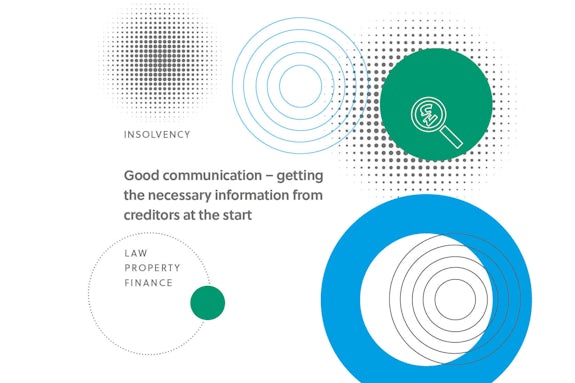A recent Sheriff Court decision considering the adjudication of claims in sequestration highlights the merits of getting all the necessary information and documentation from creditors at the start of the process.
The decision in Sequestration of Nahid Ali covered a number of points including the extent of AIB’s review powers in terms of s.127 of 2016 Act and how joint creditors’ claims ought to be dealt with. We consider just one area here – the gathering of information and assessing if claims are genuine.
In the Ali case, the claims in question were loans from family and friends of the debtor. The trustee had adjudicated the loans at full value and accepted the entire amount was outstanding. The AIB revoked that decision on review on the basis that there was insufficient evidence from which to determine that the entire sums remained unpaid. The AIB’s decision was challenged on appeal. The court agreed with the AIB’s approach. It said that the trustee had got it wrong in not considering the creditors’ approach to the repayment of the loans and the paucity of evidence to support that none of the loans had been repaid. All the trustee had was an informal email from the debtor saying that no repayments had been made. The trustee had not interrogated the evidence sufficiently and had not requested additional documentation to support that position from the creditors which he was entitled to do in terms of section 123 of the 2016 Act. The AIB had taken the view that creditors would normally have provided periodical statements or reminders to the debtor referencing the outstanding amount and interest accruing. The absence of that sort of evidence about the outstanding amount led to the claims being rejected.
This is really quite a technical decision but it spells out that in adjudicating claims, especially with loans from family and friends, trustees can and should consider insisting on additional evidence. Failing to do so may leave the decision on adjudication open to challenge. This all comes down to good communication with creditors about the information required prior to adjudication. We are happy to assist trustees in communicating with creditors where the initial claim is lacking in supporting documentation.
If you want to join our Insolvency mailing list please contact us here
Should you have any questions on any of the articles in this series please contact:
Eilidh MacEwan by email: emacewan@gilsongray.co.uk or by phone: 0131 285 1809 / 07376 192 463.
Steven Jansch by email: sjansch@gilsongray.co.uk or by phone: 0131 516 5361 / 07841 920 100.
Craig Darling by email: cdarling@gilsongray.co.uk or by phone: 0141 530 2044/07841 920 467
You can visit our dedicated Insolvency page here
The information and opinions contained in this blog are for information only. They are not intended to constitute advice and should not be relied upon or considered as a replacement for advice. Before acting on any of the information contained in this blog, please seek specific advice from Gilson Gray







